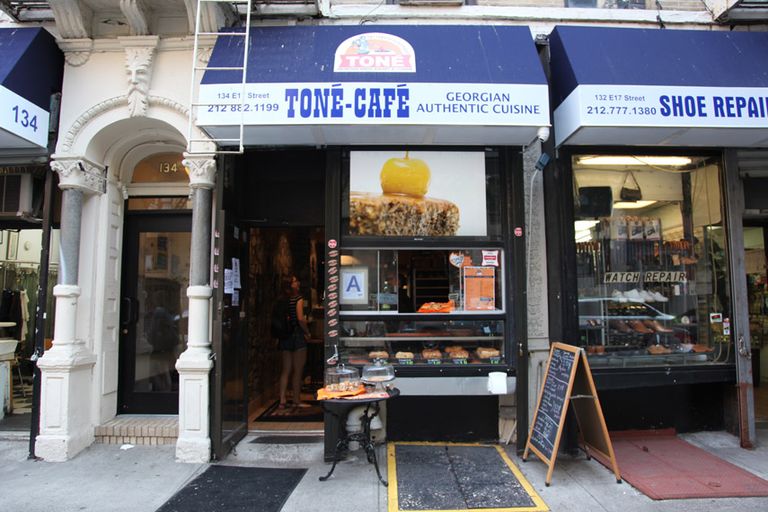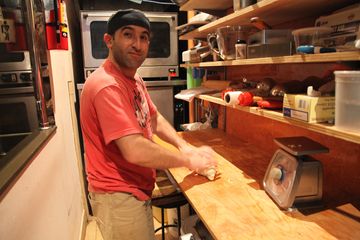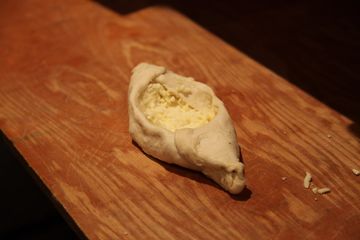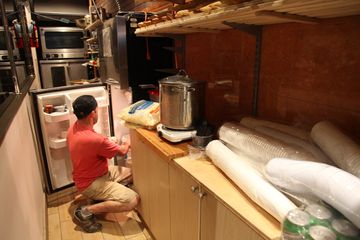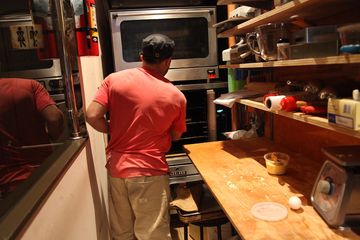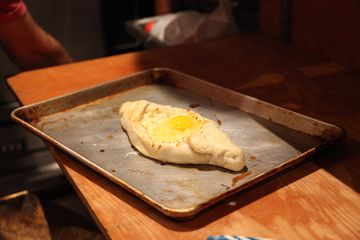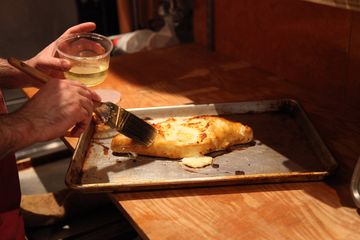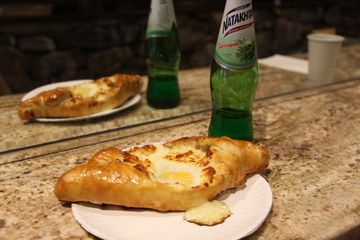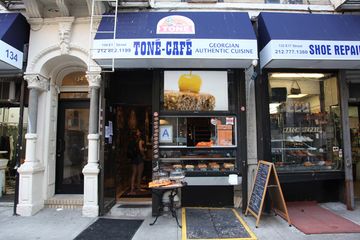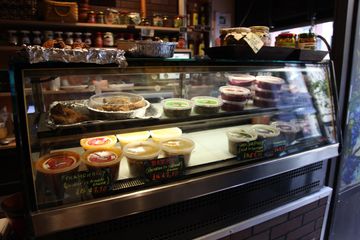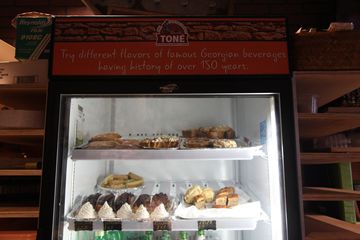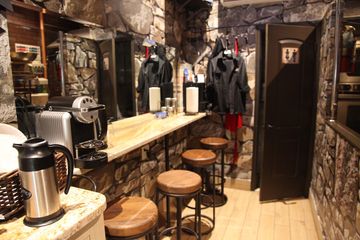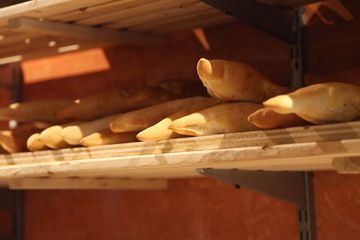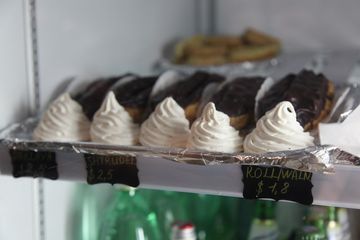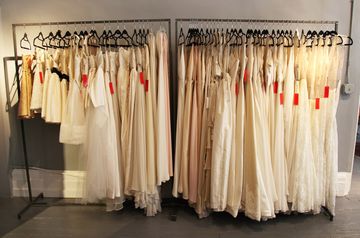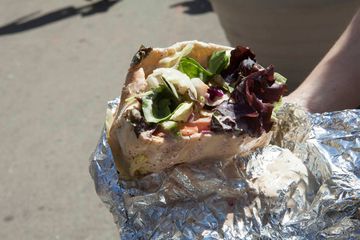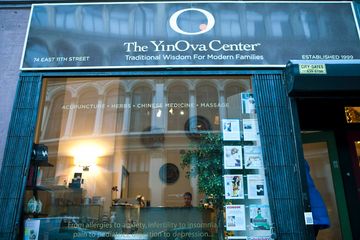Today, Shareen Mitchell is a bicoastal business owner, a sought-after entrepreneur with fourteen employees and a celebrity following. But no one would have guessed it eleven years ago, when Shareen was, in her own words, “broke, in debt, and selling at a flea market. ” That flea market booth soon grew into a 7, 000 square foot vintage warehouse in LA, and within a few years, Shareen had expanded to New York City. In spite of her success, Shareen’s location on West 17th Street is one of the best-kept secrets in Manhattan. Hidden away on the second floor of an old walk-up, the only sign of its existence is a red dress hanging from the fire escape, and sometimes—like the day I visited—not even that. Fortunately, a friendly employee from the salon next door pointed me in the right direction, but if I had not been in the know, I would have missed Shareen entirely. This secret location may seem like a bad business decision, but it is actually one of the keys to Shareen’s success. Her stores have always fostered a sense of exclusivity, and Shareen told me that her warehouse, especially in the early days, was not only the hottest vintage store in LA, but also a gathering place for a society of hip young women. “It was a crazy, fun secret, ” she told me. “No one knew where they were getting their vintage. ”Because there are no dressing rooms at Shareen—women change out in the open—both store locations have the same “no boys allowed” policy. But the resemblance between Shareen’s two stores ends there. While the LA warehouse is constantly buzzing with youthful energy, the New York location has a quiet, sophisticated feel that caters to a slightly older crowd. The reason for the difference, Shareen explained, is that by 2009, many of her original customers at the LA warehouse were now young professionals living in New York City. “They told me there was nothing like Shareen in the city, ” she said, “so I decided to test the waters. ” She opened a shop in a train station parking lot on Long Island, above an auto shop. “People like Ivanka Trump would get off the train, ” she told me, laughing, “and walk into this auto shop with their dogs and babies and everything. ” But after a while, the trip to Long Island became exhausting, and Shareen decided to open a location in the city. “It was kind of a secret, ” she said. “I had no money for a sign, so I put the red dress out on the fire escape. ”Though she did not put much effort into the store’s exterior, Shareen transformed the inside. The former apartment is now an elegant retail space, filled with ornate mirrors and old-fashioned couches, and yet it still manages to feel warm and welcoming. One large room is devoted entirely to wedding dresses, while another two rooms are filled with vintage clothing of all kinds, from evening gowns to 1950s prom dresses. When I asked Shareen about the bridal section, she told me that the store is in the process of transitioning. “A lot of my clients are starting to get married, ” she told me, “but they don’t want to look like traditional brides. ” These young women, many of whom get married in unorthodox venues—upstate farms, Brooklyn lofts, and Manhattan rooftops—are looking for unique dresses that will express their personalities. Over the past few years, the demand for these “indie wedding dresses” has grown so much that Shareen predicts that the store may soon be entirely bridal. “A year ago, we were half bridal and half vintage, and now it’s more like seventy-thirty, ” Shareen told me. “We’re double-booked on the weekends with brides. ”The New York location may be transitioning into bridal wear, but Shareen insisted that the store will not abandon its vintage roots. Along with her bridal collection, which is all under $2, 000, many of the wedding dresses for sale in the store are reworked vintage. Shareen added that her collection is designed to flatter all kinds of body types, to celebrate women rather than inhibit them. She always tells her brides, “I want to see you looking beautiful, not you in a beautiful dress. ”
